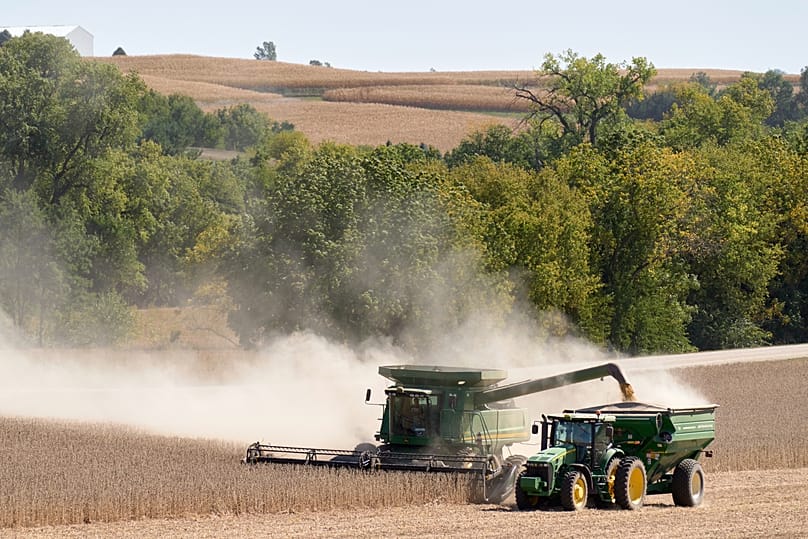European Parliament backs simplification of EU's anti-deforestation rules

European lawmakers backed on Thursday a proposal to slash due diligence requirements for business operators under the European Union's anti-deforestation law, after pressure from industry groups and countries outside Europe claimed the law was too burdensome.
The ballot followed the European Commission's announcement last month of an IT glitch that effectively delayed the law's implementation until the end of 2026, the second delay, as the law was initially due to take effect from 30 December 2024.
However, tensions among economic operators, including the United States and Brazil, have led EU governments to rethink the law last year and delay its implementation to December 2025.
The United States argued that the EU law was a significant constraint on free and fair trade and that it led to trade disruptions. Brazil voiced similar complaints and raised concerns over the law's legitimacy under the World Trade Organization.
But despite the conceded delay, the backlash against the law remained.
Then last month, Environment Commissioner Jessika Roswal informed lawmakers in the European Parliament that a glitch in the IT system was forcing the EU executive to further postpone the law until December 2026.
Green lawmakers accused the EU executive of finding excuses under the guise of IT issues.
"Pretending to postpone a law due to IT problems is unprecedented and an insult to all democrats. Ursula von der Leyen is sticking the middle finger to the planet," said lawmaker Marie Toussaint, co-leading the legislative file in the European Parliament.
The bloc's anti-deforestation law requires suppliers of cocoa, coffee, soy, palm oil, wood, rubber, and beef to prove their goods are not linked to deforestation in exchange for access to the EU market.
Cutting red tape
Under the new draft bill to simplify the law, lawmakers backed a Commission proposal that seeks to reduce the data load handled by the IT system linked to the EU's anti-deforestation law and to cut the administrative burden for farmers, foresters and other economic operators.
The obligation to submit a due diligence statement for those companies that place a product on the EU market for chocolate makers or supermarkets to resell their finished products will be over, according to the proposed text backed by lawmakers.
While these downstream operators won't need to create a specific compliance statement, they will need to retain the one received by the importer and pass it along to other operators.
The draft text also foresees exemptions from the obligation to produce due diligence statements for micro and small operators who sell their goods directly on the European market.
Small farmers and foresters, who in the current law are supposed to register and provide due diligence of their goods put in the market, would no longer need to provide a due diligence paper, but a one-off declaration to be presented in the IT system.
These operators can liaise with a member state authority or another operator with whom they are working, such as cooperatives, to submit these registration forms on their behalf.
"Fundamentally, they don’t have to do anything; it will be done by the member state in case a database is already in place," one senior Commission official said, adding that "the load in the IT system will be reduced with these measures".
EU governments yet to decide
But the ultimate fate of the EU's anti-deforestation law isn't decided yet.
EU governments are currently holding talks on the future shape of the law to fix legal concerns raised by some member states, one EU diplomat said.
While a revision clause is one of the key sticking points dividing EU countries, there's pressure to reach a consensus to avoid the current law entering into force on December 30.
"EU governments need to consider the fact that a possible European Council mandate still needs to lead the way for a quick agreement with the European Parliament," the diplomat said, noting time is running low.
Lawmakers are due to vote on the content of the EU's anti-deforestation law during the 24-27 November plenary session in Strasbourg.
While most member states back the delay to 2026, many others continue to hold divergent views on whether further simplification measures are needed, including the introduction of a new review clause, the diplomat added.
Vidya Rangan, director of policy and engagement at the International Social and Environmental Accreditation and Labelling (ISEAL) Alliance, regretted the delay of the start date to 2026 and argued that implementation challenges can be effectively addressed with the introduction of new standards and policies along the way.
"The data is clear that deforestation is overwhelmingly driven by clearance for agriculture. Addressing the EU's footprint in this starts with full implementation of the EU's anti-deforestation law at the earliest date," Rangan told Euronews.
"Governments, businesses and producers need policy certainty to advance action on deforestation. This means a clear goal post and start date and respecting the efforts that have already gone into preparing for the law's implementation," Rangan added.


